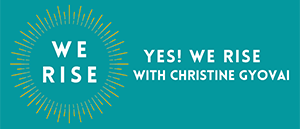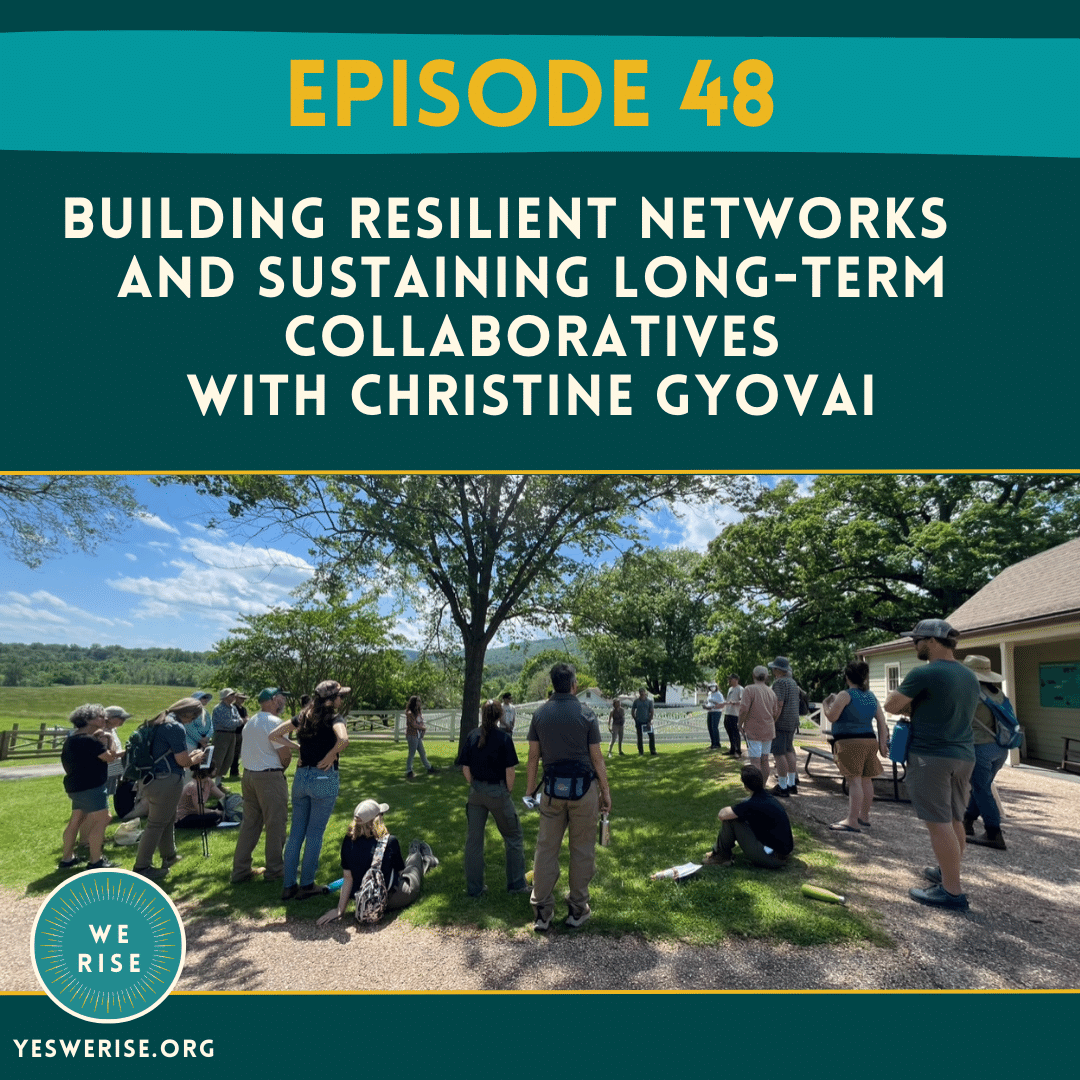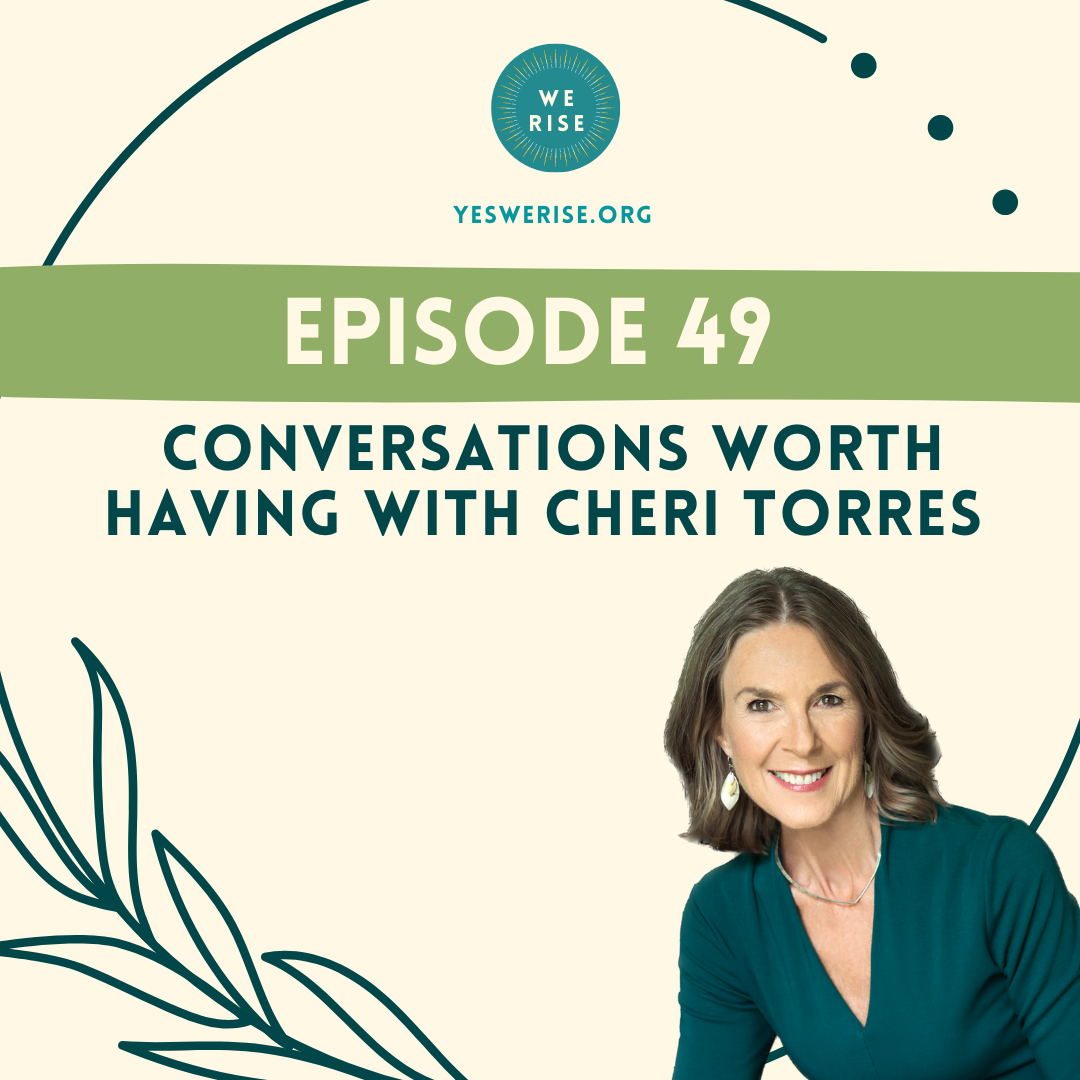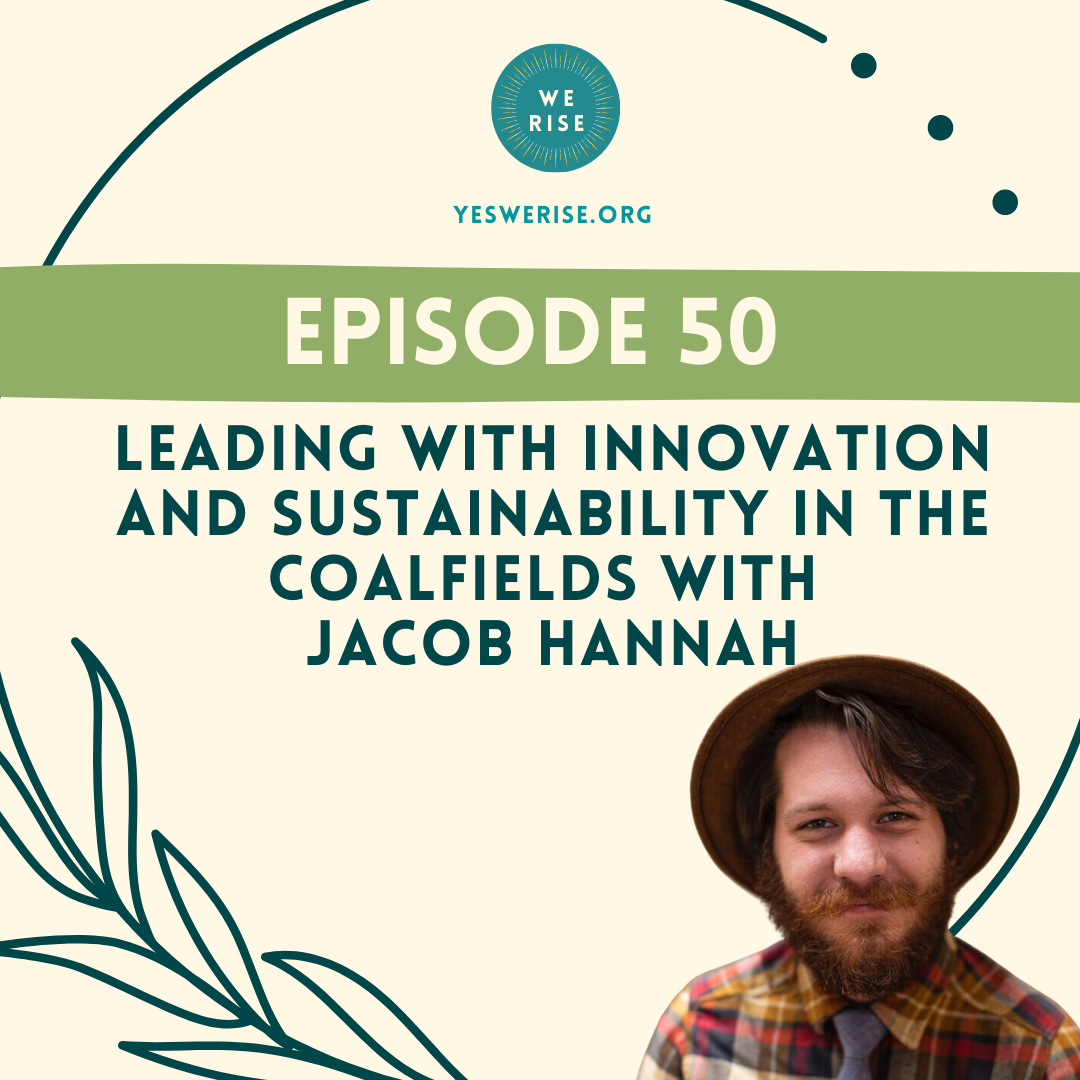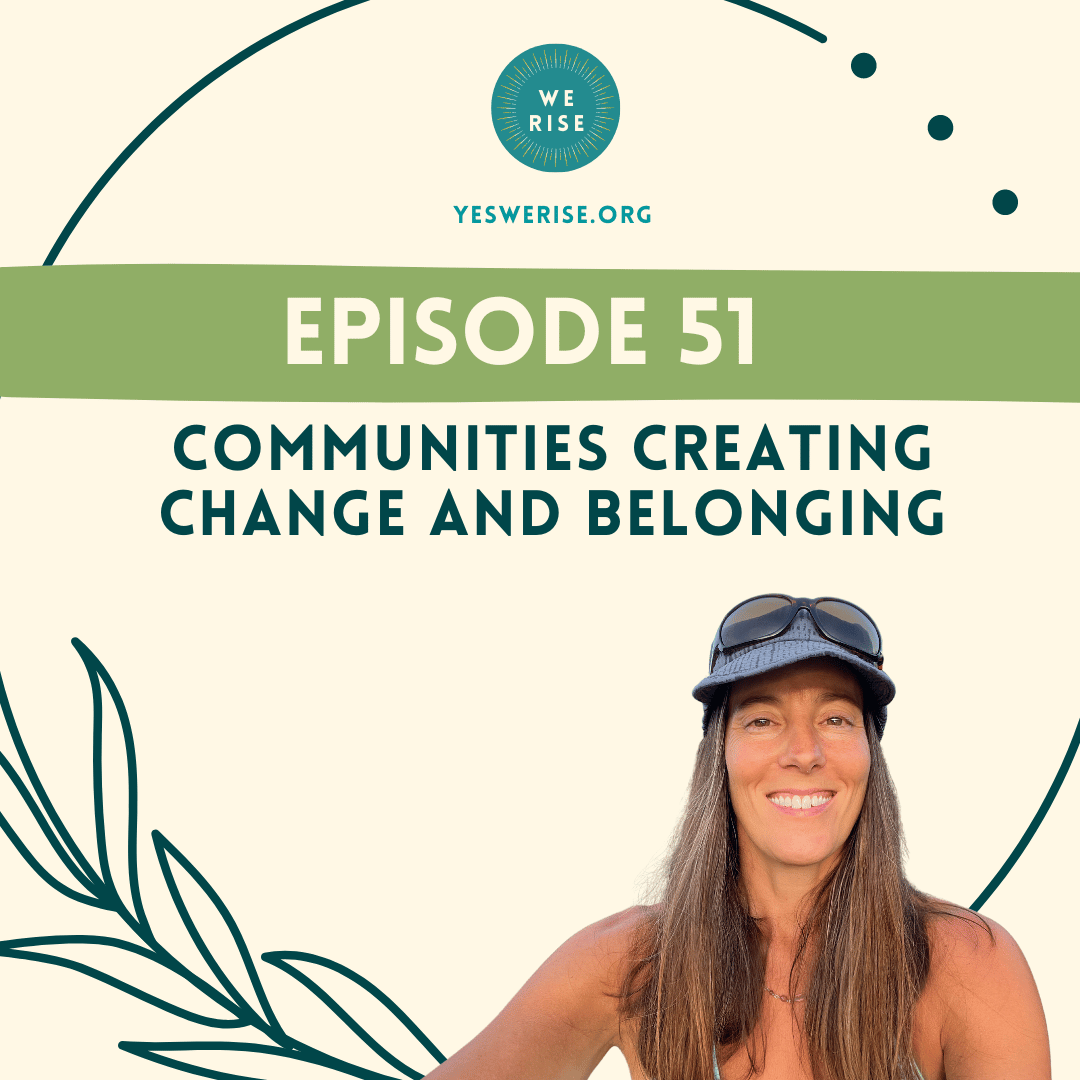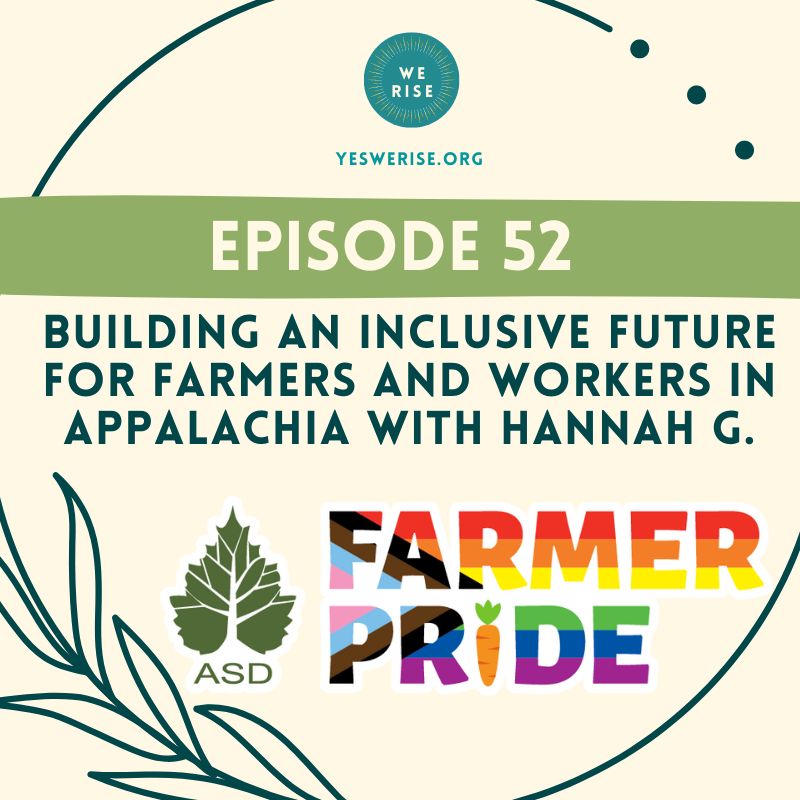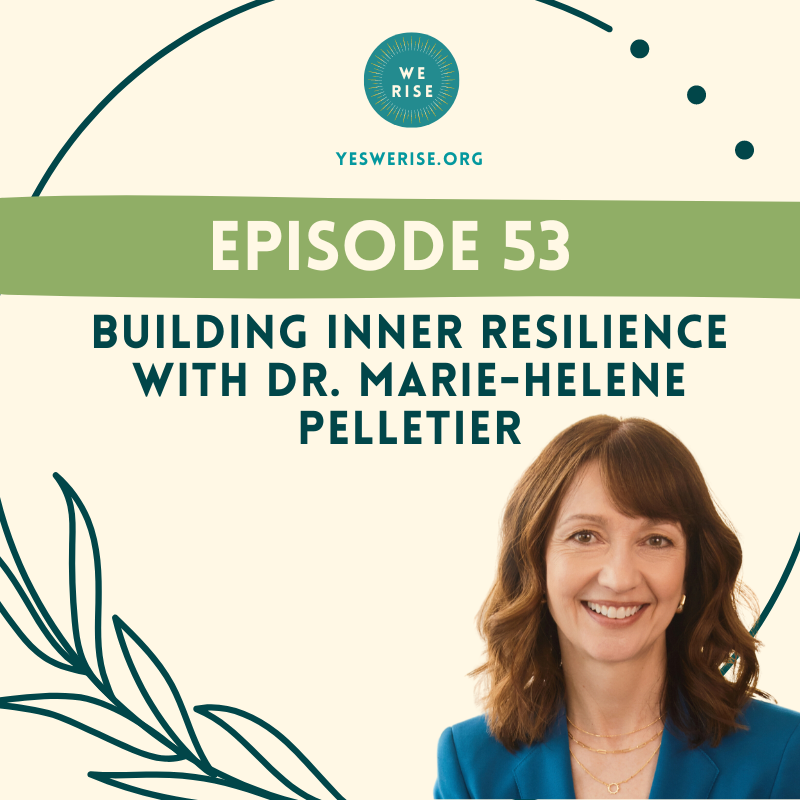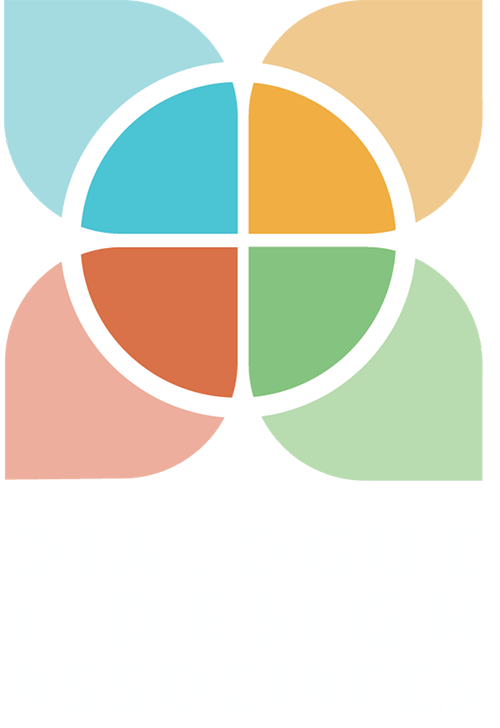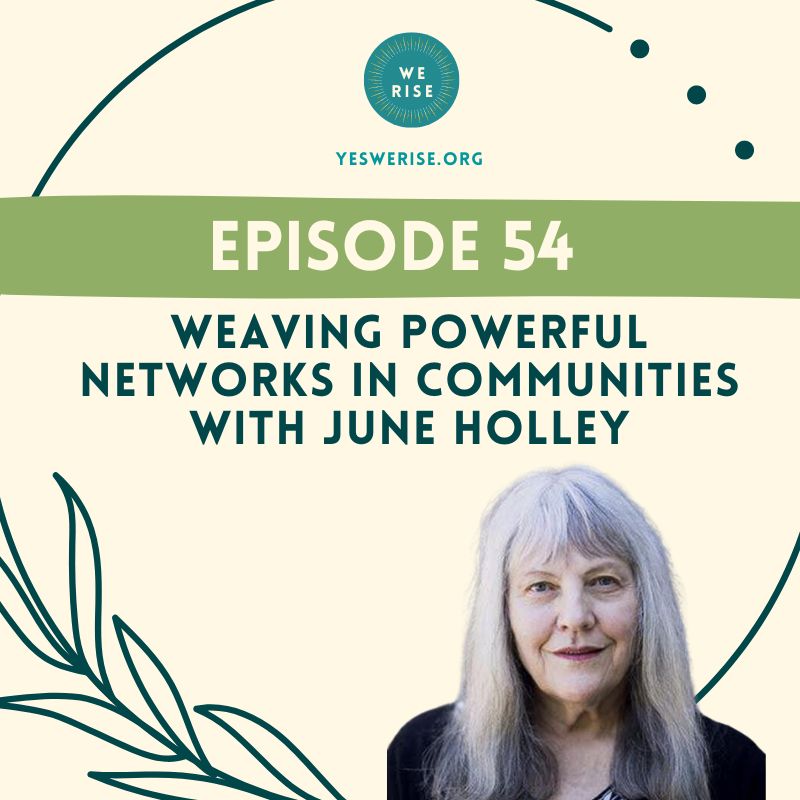
Episode 54:
Weaving Powerful Networks in Communities with June Holley
Listen to the podcast on your favorite platform:
Apple Google Play Stitcher Spotify Amazon Music
Episode 54:
In this episode, Christine and June Holley discuss the importance of collaboration and how developing deep relationships can help networks flourish. June has been weaving networks, helping others strengthen and experiment within collaboratives, and writing about networks for over 40 years. June shares stories about her life in Ohio and explains how her roots in Appalachia have played a key role in her passion for developing, growing, and learning from networks. June explains the importance of synergy and how shifting our mindsets towards collaboration can help build stronger relationships and establish trust within groups. She provides insight into how networks can become stronger through listening to people, helping community members identify their passions, and utilize strengths to work together to improve communities.
Throughout this episode, June provides examples of how to form lasting relationships using her own insight from working with several communities across the globe, from indigenous groups to food-based collaboratives. With every story, you will learn how to build meaningful connections, create lasting equity, and learn how to self-organize to determine what strategies will work best for your network.
Join us as June shares her experiences and ideas on how to grow networks that create impacts, how to self-organize and experiment, and build lasting relationships to create meaningful change. Welcome back to Yes! We Rise.
find this episode on youtube
Notable quotes
“Every meeting that we have with other people needs to be a venue for helping us deepen relationships with each other.”
“The more we build community, the less we care about consumption.”
Topics
(6:48) Why networks are personally important to June
(15:25) How online connection is important to deepen global relationships
(21:51) Effective ways people are networking across the globe today
(34:05) The connection between building community and building networks
From the Navajo Nation to the mountains of Appalachia, incredible work is being done by community members and leaders. Change is often sparked by inspiration: seeing what others have done, especially in similar situations and places. People see that when someone looks like them or lives in a place like theirs, and has created real, true and lasting change, change that will allow their granddaughters and grandsons to thrive — they begin to imagine what might be possible for them. No longer waiting for someone else to come and save them, they realize they are the ones they have been waiting for. But what creates that spark? What creates that inspiration? Learning through stories and examples, feeling a sense of agency and belonging, and getting fired up to kick ass creates that spark.
We Rise helps community leaders and members learn to forge a new path toward creating resilience and true transformation. One person at a time, one community at a time, one region at a time, the quilt of transformation can grow piece by piece until resilience becomes the norm instead of the exception. Together, we rise.
Links/Resources Mentioned:
NetworkWeaver – Weaving System Shifting Networks
Impact Networks Book by David Ehrlichman
Connecting to Change the World Book by Peter Plastrik
The Yes! We Rise podcast is produced by Dialogue + Design Associates, Worthfull Media, music by Drishti Beats.
Follow Yes! We Rise on Facebook and Instagram.
Please rate, review, and subscribe to the podcast so we can continue spreading our message far and wide. Find our email list at the website: yeswerise.org. Thanks for listening.
Transcript
Welcome to the We RISE Podcast, where we are building collective resilience.
I’m your host Christine Gyovai, business owner, wife, mother of 2, paddle border, and I love working with communities across the nation.
Join me as I share stories and strategies to inspire action to build resilience and community transformation.
From the Navajo Nation to the Mountains of Appalachia.
Incredible work is being done by community members and leaders.
Christine Gyovai 00:52
I’m excited to share more on the podcast today.
Welcome.
Welcome back to the Yes We Rise podcast All.
I hope you’re having a 1 full day today.
I am so excited to introduce you to June Holley for this new episode of the We Rise podcast.
Christine Gyovai 01:35
This episode really focuses on our seventh community resilience strategy, which is We Rise, the collective is more effective.
And this framework, it really helps guide a lot of the way that we work with amenities to help envision their future and find tools and resources to make it happen.
Foundationally, we believe that the collective is more effective and that collaboration, especially over the long term, is key to creating lasting change.
With that, relationships and trust also take time to build and grow and they’re necessary for real growth and transformation.
Brave spaces for all community members to work together need to be created and peer learning is central both in person and in virtual meetings.
Christine Gyovai 01:58
New people who are engaging need to be proactively recruited by others through inclusive and trans parent engagement processes.
And building networks and deep partnerships are an essential ingredient of effective and lasting collaboration.
So in comes June Holley.
June Holley is a leader in the field of collaboration and weaving networks.
And that’s just groups of people working together to create the future they want to see.
Christine Gyovai 02:25
June Holley has been weaving networks and helping others to learn to weave networks for over 40 years.
First, supporting local entrepreneurship networks and initiatives in Appalachia, Ohio, and then working with networks all over the world.
Much that she has learned is included in the network Weaver handbook, which is 400 pages of simple activities and resources for network weavers.
We use this resource in our work at dialogue and design, and it really is tremendous.
June has also created network weaver dot com.
Christine Gyovai 02:44
A tremendous website with many free resources and a blog authored by over 40 network weavers.
She also rates at medium dot com at June Holley.
She is currently writing a book called Transformation, co creating a world that is good for all of us.
So, welcome back to the Yes we rise podcast.
I’m excited to introduce you June, and look forward to diving in.
Christine Gyovai 02:54
June, Holley.
I’m so excited to have you on the Yes We Rise Podcast.
Thanks so much for joining.
You introduce yourself so folks know who I have the delight of speaking to today?
June Holley 03:22
Okay, so my name is June Holley, and I’m 75 years old.
Woo hoo.
So just pointing that out so people realize, you know, I’ve been around the blonde once or twice or 3 dots.
So I live in right in Athens, Ohio, which is part of the Appalachia region, the northern part.
And I’ve been there for, oh, I was just realizing it’s 40 some years now.
June Holley 04:33
And just feel really anchored in this wonderful community of the app lesson part of Ohio and even Appalachia altogether, where I’ve, you know, spent virtually my adult life.
And I have, you know, I started doing a lot of grassroots organizing here in the Appalachia Ohio region 40 years ago and did a really interesting experiment with economic networks through an organization called ACENet, the Appalachia Center for Economic Networks, where we helped in particular, low income food entrepreneurs by creating a kitchen incubator.
And then in the last 16 years or so, I’ve been a consultant of network.
So I’m really interested in how we can collaborate together to make more things happen than if we tried to work by ourselves.
And now I’m writing a book called Co creating a world that’s good for all of us.
June Holley 04:37
It’s taking network stuff to the next to the next level.
Christine Gyovai 04:39
When does that do to come out, June?
June Holley 05:25
Well, I’m not even sure it’s going to exactly be a book.
It might be more of a website.
So it could be more interactive and updated because things are happening so quickly.
But I’m starting after this conversation as a matter of fact, writing blog posts.
So I’m going to start with writing some blog posts on that and it’s not going to be so much 1 perspective as I’m really trying to gather all the great thinking that’s happening out there about change of transformation and just showing people how they can kind of sift through that and sort through it to figure out what can inspire them and move them forward.
Christine Gyovai 06:00
So I want to go back a little bit to Athens and then come back to networks and ask you a little bit more about, you know, why networks?
For people who are new to this collaborative scale work, we’ll talk about that.
And folks can also learn more about some great resources we pulled from June, a network weaver, in episode 48.
And credited June has done a lot of really tremendous work around really helping networks become more effective, but also help them thrive, help them to adapt, help them to change, and really kinda meet what the need is as it arises in the moment.
So we’ll come back to networks, but Tell us about Athens.
Christine Gyovai 06:06
What is the part of the Appalachia range that you’re like and and what do you love about Athens?
The place.
June Holley 06:57
It’s so interesting that 40 some years ago, a group of us were involved in food cooperatives And we had a communities committee that was trying to figure out how could we create a cooperative community, not a commune or just a land development, but something that where people cooperated.
And so a group of us decided on Athens because at visiting it, we could see it was really innovative already.
This was back in 19 80.
And so we were drawn to the innovative capacity that was already here.
And so a group of us actually moved and plumed a community here to do social change work.
June Holley 07:30
We everybody in the community wanted to help, help create, you know, a world that was better for all of us.
And so, you know, we did that.
And I think that at that time, there were actually 17 different kinds of communities all around Athens, and so we just love that.
So I think the thing about, you know, Athens is that it’s a small town.
And people know each other, and it was always very relational.
June Holley 07:53
So people spend a lot of time getting to know each other, helping each other out.
There are incredible mutual kind of aid, informal mutual aid, and helping things happening in this community.
And I also love it.
I love the climate here.
There’s 4 seasons, but it has a really long growing season.
June Holley 08:26
And, you know, I I come from 17 generations of American farmers, believe it or not.
And so, I just I just love to, I have a very small house in the center of the old part of town and with small yard, but every inch, there’s not a blade of grass in this yard.
It’s all fruit trees, perennials, and lots of vegetables all mixed together, and so I get, I love it because it’s a great climate for growing, growing things.
Christine Gyovai 08:44
Not only the place but innovation, but the ability to dive in and do what you want.
And I love that you’re in town.
It sounds like you can probably connect with people, but you have things growing in every square inch of where you are, so connections at multiple levels, that’s awesome.
And the experiment probably continues in different ways for social change.
June Holley 09:03
Exactly.
Exactly.
And the, you know, the community is now very collaborative.
People you know, I remember way back when when Asenet, we made a decision that we were never going to write a grant just by ourselves anymore.
Every grant was going to be collaborative.
June Holley 09:27
And that was like the first step I think in just really moving to a more collaborative community.
So you look around now and even though I’m not part of ACENet and haven’t been from long on time, there’s still just tremendous amount of collaboration happening in this community in every sector of experience that you look at.
Christine Gyovai 09:34
Tell us a little bit more June about networks.
You know, what do you mean by that and and why networks?
Why are networks important?
June Holley 10:18
Networks means a lot of things.
Like, my background is sociologist, whatever that means.
And So I look at networks first as just about relationships and the patterns that they create.
And so it’s not necessarily about an organizational form, which is the way a lot of people use networks now, a formal network, like you know, a food network or something where people get together and they decide on a purpose, which is a wonderful and important thing.
But network the term network is much broader than that, and it’s really kind of saying to people, hey, we need to pay attention to relationships.
June Holley 11:37
Because that’s what makes a difference.
Is when we get to know each other, know each other’s strengths and interests and capacities and challenges, then we can really pull together people for collaborative projects, and they’re gonna be much more likely to work because we really know each other, we care about each other deeply, and so we’re willing to deal with the hard stuff that comes up and really make things work in a new way.
And and I feel that relational quality of life is something that we’re starting to realize is critical that we It’s not just an add on, but we need every meeting that we have with other people needs to be a venue for helping us deepen our relationships with each other, and we need to spend explicit time on that.
So, when you start a meeting.
You you need to have check ins and if somebody’s having a problem, you stop right there and say, okay, we’re going to spend some time, you know, helping this person think this through before you go on to the so called work of the meeting.
June Holley 12:02
I believe that the relationship building, time spent on relationships is is our work.
That is our work because that’s what needs to shift from a world of separation that we’ve been brought up where you know, we each have our little desk in school and we’re waiting for the, you know, and if we if we collaborate, it’s called cheating.
So
Christine Gyovai 12:04
— Right.
— we’re at the plate.
June Holley 12:23
Right.
Right.
So we need to That’s really deep in us, and we need to really explicitly work on shifting that to being about the way we are in the world is collaborative and it’s about caring about each other and supporting each other and working together?
Christine Gyovai 12:43
I have a more specific question about groups who have worked together for a long time.
So 1 of the groups we work with is a collaborative that’s been together for about 7 years.
You know, there’s been some change over time in leadership as naturally happens, world of online meetings right now.
There’s a little stagnation.
Happening.
Christine Gyovai 13:17
You know, and maybe there hasn’t been things are happening at the transactional level a little bit, this update, that update, but not the the deep work of relationship building.
So with an example like that, how have you seen that groups have moved more into building relationships as new partners have come into networks, and there’s been change to still continue to do the work because that’s what keeps people engaged but those relationships, as you said, aren’t the key ingredient to doing the work, the relationships and trust.
That’s where it all is, and that just takes time.
June Holley 13:44
Okay.
So I think you’ve got to understand that networks are often and probably need to be quite large.
Lots of relationships, and they don’t all have to be formal.
And then how you organize the work, though, that’s where people get a little confused.
So usually what happens is out of that larger network, a kind of collaborative or collective emerges that tries to do the work of the network.
June Holley 14:17
And I think that’s and then they try to figure out what they’re gonna do altogether and try to consents on 1 thing.
Well, I think that that that is that’s where then you tend to things get stagnant after a while because everybody doesn’t want to do the thing.
And so I think the missing piece is what I call self organizing or clustering.
And that’s where networks need to spend a lot of time figuring out who wants to do what?
Who’s interested in doing what?
June Holley 15:41
And not just do 1 thing, but get people to try out different ways of shifting the system or what whatever.
So you might have 1 group working on, you know, 1 aspect like maybe they’re working on, you know, how can we get food from farmers to food pantries and have that be a win win, or in another group saying, how can we get food out to really fresh vegetables out to really rural areas.
So you have people are working on different parts of the food system.
But they need to communicate about what they’re doing because often there’s like lots of nice synergies.
Like, for example, in in our community, the farmers are now being paid to give their excess produce after the farmer’s market, to these traveling vegetable trucks that go grow out, and and people are paying what they can for it, and it’s actually working out that that some people pay a lot for their vegetables and some people pay nothing and it actually makes the whole system so they’re combining some of these different aspects of experiments that they’ve already tried.
June Holley 16:16
So, you know, it’s this idea that you need, we need tons of experimentation.
We don’t need to And we don’t need to agree very much.
In networks, people don’t realize, you don’t really you don’t really need to agree on anything.
If you have those relationships, you know each other, and you know how to cluster, and find each other, and work on different projects collaboratively, and then share what you’ll learn with each other to find synergies.
I think that’s what energizes networks.
June Holley 16:59
If you have a network that’s not, it’s kind of flailing, it’s because people aren’t getting to work.
They’re not getting help and support in working on what they want to work on.
And So sessions where people are really exploring like you break them up into groups and to explore different kinds of things.
And then maybe lots some of those groups go on to do something.
And it and this is why things like innovation funds are really great, because then you can have a little pot of money and people can get seed funds to maybe get a facilitator for their group if they’re not really good at facilitation or, you know, get some resources.
June Holley 17:21
So marginalized groups are being able to fully participate by having a stipend, but I found that when people are organizing, they get a chance to work on what they care about and what they think is going to make a difference, then people are really energized.
Christine Gyovai 17:41
Yeah.
That’s a great way to say it.
And it takes that time of just getting together, sharing ideas, connecting with each other for those relationships to deepen or rebuild, especially after you’ve been online a lot of times.
It can certainly happen online, but I think that the in person space is just a different deepening.
To some degree of those relationships?
June Holley 18:16
I work online totally.
I don’t do any face to face And I really think that we need to stop saying that you can’t develop deep relationships online.
I mean, yeah, you know, there’s there probably are the pheromones and stuff like that that are good face to face, but I have incredibly deep relationships with people.
I have never seen, I will never see because they live on all parts of the world.
And if we’re going to be world citizens, and I think we need to, we have to learn how to build deep deep relationships online.
June Holley 18:37
And I think with and I’ve seen really good facilitation that you get lots of time in breakout rooms.
You really get to and it’s the questions.
What is it that you’re talking about?
And so if you’re really talking about things that are are deep, then you develop deep relationships.
And if you really give that space for that, I think you really can.
June Holley 19:16
And to, yes, we need to have those face to face, we need to be very place based because that’s real in a way that, you know, world stuff sometimes It’s a very real.
But we also need to be connecting with Pete networks that are in Africa.
In New Zealand, there’s all kinds of great stuff happening.
And if we don’t know about If we are both deeply rooted in our place, and really deeply connected with other parts of the world where we can learn and because you know, we need to change.
The whole world needs to shift.
June Holley 19:45
And a lot of the best examples of where we need to go, are in places like Africa where there’s still, you know, rich rich cultures of ritual and relationship with the land.
Because, see, relationships isn’t just about people.
What’s about everything?
It’s about all of nature.
It’s about all the beings in the world.
June Holley 20:31
And right now, we, you know, we don’t even know how to recognize bird songs.
Or we don’t really you know, understand what plants really like each other and want to be together.
You know, I mean, there’s there’s so much attention we need to pay for all the relationships of everything around us.
And we can learn about that from cultures all around the world, where who haven’t been so westernized and and and this idea of separation and and power over and those kinds of things that really really are destroying our planet.
Christine Gyovai 20:38
So tell us what’s inspiring you from around the globe a little bit.
What are you seeing out there across the globe that’s inspiring you?
June Holley 21:09
It is so amazing.
I mean, stuff in India, this societal thinking, there’s a group that are really understanding like you know, how to build sort of scale, they call scale in from the beginning.
Like you know, we need to not just be a little fringe kind of thing happening and what like you think local food.
That’s been a French thing for a really long time.
Where How does it how does it move to the place where it is really defining our food systems.
June Holley 22:46
And so there’s a lot that we need to learn in, like in India, they’re figuring a lot of that kind of stuff out.
You know, I’m also be what we call indigenous cultures, which I’m not sure the right word, but cultures that still remember you know, before this western dominance culture has kind of taken over, there’s so many remnants that we need.
In fact, in our own, like I’ve just been realizing, there is a lot even in western European culture that was before sort of this industrialization and such happened, there’s lots of beautiful connection to land, and and spirit and and whatever.
So kind of looking for, you know, what are those models of relationship you know, I mean it’s not where we don’t need to slavishly try to bring back because so much of the knowledge has been lost we need to co create new cultures that are really healthy and juicy and collaborative, that we’re co designing.
In fact, that’s a whole key process of networks is co designing, trying out experimenting, you know, trying things out, that’s what I’m so inspired by all over the world is, is But, you know, the concern is that there are all these networks but the networks haven’t figured out yet how to network.
June Holley 23:53
And without getting overwhelmed, you know, you can only have so many relationships.
But how do you need to stay in touch and kind of sort of align and find those synergies between your networks and other networks.
And so I’m really encouraging people to look around and, you know, find others, and I’ve started to actually draw some, you know, circles of all the networks, like just in the United States, there are so many food system networks whether it’s sustainable ag or local food systems or food entrepreneurs or indigenous communities that are exciting things that are happening in in terms of reviving some old food ways.
But these groups are hardly talking to each other.
And so I just anybody listening to this, who are other networks working sort of in your surrounding space and can you just take an hour and call somebody up?
June Holley 24:15
Zoom them in and find out what they’re doing and are there any little ways that your networks might connect or ways that you might communicate with each other lightly.
This doesn’t have to be some new big heavy network, but we need to know what each other’s doing and know how to support each other and find those synergies.
Christine Gyovai 24:45
Building collective resilience looks different in different places.
What stories and strategies inspire you?
Share your ideas with us on social media and check out our website at yes, we rise dot org to find the show notes, interview videos, and the links mentioned on the podcast today.
What other ways are you seeing around the globe or in the states?
Where you really see network scale stuff happening that’s creating really awesome change.
Christine Gyovai 24:54
Like, what kind of, like, practical you know, ways that people are clustering and experimenting?
Like, what what’s moving the needle that you’re seeing around the globe?
June Holley 26:33
Well, like the the food policy council network out of Johns Hopkins, for example, they have created a network of 365 local food policy councils and state food policy councils.
They have all kinds of ways that they are clustering to learn about like how do we at equity and into what we’re doing, or they have so they have lots of sort of communities of practice that are exploring different ways, they meet together, I know I did a session with them a couple years ago on, you know, how do you make more effective networks?
In your local community, but that’s a group that’s gotten really some great size to it.
It is in influencing, every year they put out like a big beautiful rainbow circle that shows all the different ways that they’ve impacted policy on both the local state, and now they’re starting to introduce you know, federal policy.
So, you know, that’s just 1 of many, many exciting examples, I know like the nature conservancy is doing exciting work with indigenous groups all, you know, around the globe that is is just, you know, you talk about, okay, where where are people who really know how to take you know, take take care and be in relationship with land and places.
June Holley 27:18
And, you know, they’re just doing some fabulous network building activities you know, around that.
I mean, I could go on and on.
There are just I mean, there are so many hundreds of thousands of networks out there.
And, you know, I think for people just starting to think that going on the network weaver site and reading blog posts about can just get you so inspired about about networks and you can just do a little research and find out who’s our There’s probably somebody already working in the space you’re interested in.
You don’t need to usually start your own network.
June Holley 28:14
There are usually people doing that and people that you can learn from And there are now quite a number of really excellent books on forming networks.
If you if you feel like you wanna start a new network, So, you know, and learning about self organizing, that’s the missing piece for a lot of networks.
And there’s lots of lots of free resources on that network lever site that can really help you out.
So You know, lots of concrete things that you can do, if you But I think instead of thinking about starting a new organization, find a network for for network people who are already working in the space that you want.
You know, I think nonprofits are kind of they’re they’re becoming old school.
June Holley 28:25
I think the place to put your energy is on is on network.
Because then you can work at a much bigger scale than just a single organization can.
Christine Gyovai 28:44
So we’ll include the links to the network webersight and the show notes and the web page.
So it’s such a tremendous resource that’s been of great valued us and definitely recommend that to folks in the newsletter.
So what are a couple books that you feel like are really essential to this work?
And ways that people you talked about self organizing being the missing piece?
Well, in what way?
June Holley 29:13
I know David Erickman impact networks and there’s 1 by plastic.
He’s gotten 2, but his latest 1, which is much more about scale, which has got some great stuff in it.
David’s book has stuff on self organized.
The Network Weaver handbook, which you can get a PDF copy for you know, very little, and it’s got sections on self organizing as well.
And then again, resources there.
June Holley 30:02
First of all, I don’t think we know enough, especially we don’t know what we don’t know and what we can’t see.
And so, we’ve got to jar ourselves out of our old ways of thinking and doing and being.
And the thing about self organizing is that it is like helping us move into this thing where we’re not waiting for somebody to tell us what to do, but we are looking around we’re noticing where something could make a difference, and we’re stepping up and, you know, gathering some friends and saying, oh, we could try something here.
So it’s getting people to initiate, to experiment, and try out new things to see what’s really going to work, how do you really shift systems are massive.
The food system.
June Holley 30:21
It’s massive.
How do we begin to change that?
And, you know, so I think self organizing can help us be more strategic in some of our activities.
We need to understand the whole system and see where we might nudge it.
Where’s change already starting to happen?
June Holley 30:52
And then kind of like trying to accelerate and and move that, kind of open up.
It’s like we’re Dandy lions in the concrete, and little cracks in the concrete.
If you’ve ever seen like Dandy lions and weeds, they get in that crack and before you know it, the concrete is starting to fall apart.
But how do we find the crack?
And how do we bring together the little leaves and, you know, little specks of dirt and make a dandelion and get that root going deep?
June Holley 31:28
Down into our place and cracking open the concrete.
So that’s what’s self organizing helps us do, and also self organizing is about learning.
Like, if you look at self organizing, that’s how nature works, like, so you look at termite castles, And these are these beautiful massive structures in almost every continent in the world, but each 1 is is designed to fit into that place.
And their fabulous air conditioning, they go down often.
30, 50 feet into the ground to make it cool for the little babies.
June Holley 32:00
Now, there is not a boss in that whole termite castle of maybe a million termites.
There’s no boss.
What they do is they pay attention to each other and they notice what’s working and what’s not.
And when something’s working, they send out pheromones a little sense to draw other termites to them.
And then together, they collaborate on kind of, you know, making another part of the Turmite Castle, so they pay attention.
June Holley 32:28
They they work collaboratively really well.
They learn from what they’re doing.
And all this without any boss at all and, you know, can we learn from nature and realize that you can create you know, wonderful new systems, or at least partially new systems, just by being able to this power of self organization?
Christine Gyovai 33:21
My dad’s side of the family is a mining family from the Rock Creek and Dry Creek kinda Neoma area in Southern West Virginia.
And the first time I you were talking about the Johns Hopkins rainbow circle of work taking place in the food policy realm, and on the other side of my family, my grandfather studied at Hopkins and my grandmother started the first nursery school at Hopkins.
So it’s been this and my grandfather was a firefly scientist trained at Hopkins So this kind of interesting collision of world.
And when you mentioned that circle, mine immediately went to Mary Hoffard and Betsy Taylor’s work around the circular round of activities from the Rock Creek and Dry Creek area, the Cul River Valley area in Southern West Virginia where my dad’s family was.
And we can put it in the show notes.
Christine Gyovai 33:58
Now it’s on the Smithsonian folkways website.
But it’s this graphic depiction of the calendar year and what activities are, like, just people inherently do, they know to do in different calendar months.
So, you know, in in It’s and then it’s what plants are coming in and and what to gather and what activities people are doing connected with the season.
So in the fall, you know, leaves are dropping.
People might be gathering firewood or gathering roots, and then, you know, go through in the winter months in the spring, you know, gathering Morrells and planting.
Christine Gyovai 34:36
And and then the actual graphic has links that you can click on and then hear oral histories.
Hearing people talk about the ways that they’re connected with place.
And some of the work that gosh, I really love working and Southwest, Virginia, and Central appalachia because there’s a real sense of belonging the place and to each other that’s still really intact often.
And it allows people to, like, drop into the work and self organize and build relationships.
But there’s not a questioning that happens.
Christine Gyovai 35:17
You know, it’s almost a body sense of wisdom of being connected to place rather than a head place.
And to, I guess, wrap this all up.
I’m looking at my window at our orchard here, where we are based in Central Virginia, and our our forest garden, we have fruit trees and multiple layers.
And we put that system in about 10 years ago, you know, with pigs and then swales on contour and then a workshop and, you know, a lot of things.
And it was fascinating June in that I The only way I really know how to describe it is I became into relationship with our land through that process.
Christine Gyovai 35:29
It was this co creating.
It was this listening.
It was this tending to process.
That was really meaningful.
That belonged me to this place from the outside in.
Christine Gyovai 35:35
So I just really wanted to emphasize what you were talking about that sense of place in the work.
June Holley 36:22
And the other piece is that so much of what’s interacting with the landscape is collaborative in appalachia.
So for example, you know, whether it’s, you know, going out together gather mushrooms, morale soon, soon, very next week.
I’m hoping here.
Or, you know, making the food, making the apple butter, pressing cider, those kind of activities are still very collaborative around here.
Last year, 2 of the young women and I got together on our deck and got huge amounts of tomatoes and made salsa together.
June Holley 37:22
And we just had so much fun and we’re gonna invite more people this year.
So it’s it’s this thing to remember and and because so much of, you know, American farming is nuclear family, but I think in Appalachia, it was much more community driven it.
And I think that’s an example of how we can go to fragments of the relational economics that still exist here and just amplify and visualize them to others.
Because we need, we need community.
I I think that’s that’s the thing, consumption has pushed out community, and I think the more we build community, the less we care, it all about you know, the the the the forms of American consumption that that we see all around us.
Christine Gyovai 37:47
So in just a moment, I want to move into our quick roller questions to wrap it up and bring it back to you.
But do you Anything else you wanna share about the beauty of networks for transformation and the book or digital resource that you’re working on about the ways that you really feel like transformation can happen as we move forward in the next hundred, 203 hundred years.
What do you see in June?
June Holley 38:14
I mean I just think that the importance of learning and reflection taking a lot of time like I’m suggesting to people they spend at least a quarter to third of their time, not doing, not doing, but actually taking time to step back and reflect an what are we learning?
What are we noticing?
Oh, what surprised us?
What could we do more of?
How could we you know, what does this mean?
June Holley 38:55
What do we need to pay attention to because this happens?
I mean, there’s just so much richness we figured out so much, and and we don’t even realize it because we’re moving on to the next thing.
So Moving out of busyness, oh my gosh, that itself is transformative, taking time to to reflect to care about each other, to eat good food together before we have a meeting.
So, you know, just just watching the pace of things and taking time to just look at and notice.
What is going on.
June Holley 38:59
I I think that’s sort of real transformative just in itself.
Christine Gyovai 39:18
So Because when we keep just stayed in the hamster wheel of busyness onto the next thing, then it also really keeps us stuck at least from my experience and our heads.
And then we don’t connect to body wisdom and that and the chance to learn and reflect and paying attention.
And and what is the need?
And you talked earlier June about that whole system.
Where has change hacked?
Christine Gyovai 39:30
And where to accelerate it.
So if we’re not dropping back into that learning, then we just start doing things that for the sake of doing.
So I really appreciate that you brought that up.
Mhmm.
Yeah.
Christine Gyovai 39:45
So you’ve talked to some degree about the things that bring you joy, it sounded like, from, you you know, your the joy in your voice about food and place and salsa.
Tell us more, June, about what brings you joy in your own life.
June Holley 40:16
Well, my 5 year old granddaughter came over this weekend and fell in love with reading.
But I I just Oh, my gosh.
You just can’t believe that a person can She said, You know, I love to weed.
I just love it.
And we spend about a half an hour going around digging up weeds and putting them in a bucket putting them in the combo style.
June Holley 41:23
And just the joy on her face from both, you know, just getting that she says, I love to get dirty.
So, you know, just seeing that in passing on my joy of working in the garden to, you know, somebody a younger and just seeing how healthy and life giving it can be to connect you know, just on every level, like, right down in the yard, connecting, you know, to all the way to connecting with people in New Zealand.
It’s just that connection that you know, it brings us all joy.
And I just think that there’s so There’s just this huge welling of joy, just waiting for us, but we we need to reach out to others and, you know, really spend the time building those relationships that are going to are going to, you know, make our lives worth living.
Christine Gyovai 41:26
What keeps you moving forward on the days you struggle?
June Holley 42:13
Oh, well, you know, I just have this really strong sense that you know, I I’m like everybody else.
Can can make a difference in just, you know, whatever you do.
So I I just feel like, yeah, whenever I kind of lose it a little bit, I say, you know, I am who I am, and I know I have all these limitations.
But I know that I’ve already I’ve been able to make a difference, especially when I’m working with others.
And that we all we all have this capacity, and it can be so amplified, you know, when we work when we work with others will reach out to others.
June Holley 42:36
And and so, you know, and and it’s its own joy as I said, you know.
It’s just like even the conflict and the hard stuff, is joyful in the long run-in people.
I think people need to realize, hey, the deeper you go and the harder it gets for a while.
You know, that it’s just opening up the volcano of goodness.
Christine Gyovai 43:04
You know, there’s line that’s repeated a lot, things that happen for us, not to us.
And I know in my own life that sense of uncovering you know, the struggle and learning, you know, what the gifts are in that struggle can be hard to stay connected through struggle, but the gifts that emerge through struggle are tremendous.
It’s taken me a long time and great great hairs to understand that.
But, you know, really, what what gifts struggle can offer.
June Holley 43:05
Mhmm.
Mhmm.
Christine Gyovai 43:17
And at the collaborative scale, the network scale too.
Mhmm.
So any other key lessons learned you wanna share others, June, who are working to create change in their lives and communities and regions.
June Holley 43:38
Yeah.
I mean, just that that just find something to do with others.
I mean it’s just as simple as that.
It’s like, you know, taking taking time to notice what’s going on and and notice your own reaction, like, what are you drawn to?
You know, we don’t have there’s not a right place or a wrong place to work.
June Holley 43:56
There’s just like What really excites you?
What Where do you notice your gifts, you know, shining a little brighter?
Figuring out.
And and it can take a while.
Well, I wandered around in the wilderness for quite a while before I figured out where I was going to land.
June Holley 44:29
And so, you know, don’t don’t be discouraged if you try something.
But, you know, investing in you know, learning how to have good relationships is, you know, and how to listen, how to facilitate.
Oh, these are just huge gifts.
And so if right now you’re on a learning path, just learning all those kinds of skills that will help you have and your community have better and deeper and more impactful relationships.
Christine Gyovai 44:36
June, any other thoughts or reflections you’d like to share and tell us how people can learn more about you and your work?
June Holley 46:00
Well, I am on medium, maybe you can put that mediumly, and I think that lots of people, it’s not my work so much anymore, but lots of people working on this and Again, network weaver is just a great place, a wonderful blog post there, other people that you can reach out to I think most of the people there are are quite accessible and, you know, you can reach out to them and just, you know, have some conversations.
Lots of good books, many of them are reviewed in the in the blog post so there’s no lack of resources out there and people who are willing to be, mentors, collaborators, whatever you need and want lots of great Oh, Fito Networks.
So Fito dot network is another international group for networks of networks and they just have they’re going to be having a starting next Monday, there’s going to be network’s festival that I really encourage people.
So if you look up Fito on network, you can find out, and there’ll be lots of breakout time there where you can meet people from all over the world who are working in all kinds of different networks.
So, a few things to get you started there.
Christine Gyovai 46:12
That’s great.
Thanks, June, for those resources.
And thank you for such a beautiful conversation today.
I really appreciate it and so much good wisdom to share and lifting up the work of of others and appreciate you leading the way.
Thanks for joining today.
June Holley 46:25
Well, thank you, Christine, for being such an eloquent and provocative interviewer adding your own experience, which I I love the stories that you you shared.
Christine Gyovai 46:28
Yeah.
Thanks, June.
Thanks again so much for joining.
Appreciate it.
June Holley 46:32
Well, thank you.
I love every moment.
Thank you.
Christine Gyovai 46:53
Hello, solution seekers and change makers.
We are glad and grateful for the work you are doing in the world.
To learn more about the stories and speakers featured in this episode, check out our website at yeswe rise dot org.
You’ll find the show notes, the interview videos, and the links mentioned today.
You can join our email list.
Christine Gyovai 46:53
Subscribe to the show to catch every new episode wherever you listen to podcasts so leave us a rating, a review.
It so helps others find the podcast.
You can also check us out on Facebook or Instagram at yes We rise to share your ideas.
Enjoy.
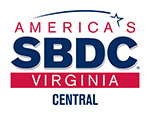
©2022 Yes! We Rise
